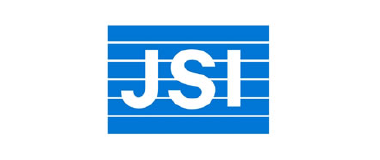Capabilities & JSI in the Digital Health Community
Implementing Open Source National Health Information Systems (HIS)
JSI developed an electronic Logistics Management and Information System (eLMIS) using the open source platform OpenLMIS, and deployed the tool in Tanzania and Zambia. eLMIS integrates all public health commodities and accommodates the special needs of vaccines, supporting supply chain function in central and regional warehouses, and at more than 8,000 service delivery points. Working with the Ministries of Health in Zambia and Tanzania, JSI documented system requirements using the CDRM (Collaborative Requirements Development Methodology) process, developed a significant portion of the codebase of OpenLMIS, and deployed the system in both countries. In 2019, the MoH declared eLMIS the national logistics system for Zambia’ and now, over 600 sites across Zambia now use the Facility Edition. Further, JSI is enabling the MoH to make eLMIS interoperable with SmartCare. In Tanzania, JSI is making eLMIS interoperable with the country’s HMIS, which is built on DHIS2. In both countries, JSI has been training eLMIS “super users” sharing expertise and ensuring the sustainability of operations for Ministries. Beyond this work at the facility level, JSI has supporting open source logistics solutions at the main institutional level with the “Central Edition” in Guinea, Côte d’Ivoire, as well as Zambia and Tanzania; related systems are deployed in Kenya and Ethiopia under different branding. Sector specific systems are deployed across the globe including a Contraceptives LMIS and a Vaccines LMIS both in Pakistan.
Supporting Country Implementation of DHIS2
JSI has been leveraging and supporting DHIS2 as an essential health tool with Ministries of Health (MOH) in support of their health systems in 13 countries through design, technical assistance, and training. Under USAID MEASURE Evaluation alone JSI helped to deploy DHIS2 for routine health information capture and management in Burundi, Guinea, Côte d’Ivoire, Mali, Liberia, Nigeria, Senegal, and Tanzania. In countries like Ethiopia, JSI is contributing to DHIS2 customization for the national HMIS. We have helped countries develop their DHIS2 systems at all levels- from integrated community case management to national disease surveillance. Our commitment to promoting DHIS2 as an open source health information solution extends to program monitoring- for example, JSI designed PIMS, a custom reporting platform built on DHIS2 that is used by more than 300 implementing partners in South Africa to report PEPFAR activity data.
Promoting Open Source Web Tools
JSI has 9 years of expertise implementing Drupal web solutions for countries and projects. We have built,managed, and developed content for more than 20 U.S.Government-funded Drupal websites, including hiv.gov, usaid.gov, and pmi.gov. As a recipient of an associate award, TB DIAH, under MEASURE Evaluation JSI developed the Data Hub feature of the TB DIAH website. The site features a data hub, guidance, and tools to support the work of the global TB community by making possible optimal analysis and use of TB data to inform national TB programs, policies, and USAID-supported interventions. JSI built the site using the open source Drupal content management system, including three contributed modules that JSI maintains (Charts, Views Database Connector, and Views Simple Math Field).
Setting and Promoting Interoperability Standards
JSI promotes interoperability by supporting Ministries of Health to create functional and effective health information exchange systems that inform country-level decision making. JSI supported the Government of Tanzania and the Ministry of Health, Community, Development, Gender, Elderly, and Children (MoHCDGEC) under the USAID Maternal and Child Survival Program (MCSP) to implement arguably the most advanced health information exchange (HIE) in sub-saharan Africa: the Tanzania Health Information Mediator (HIM). The interoperable system accepts data from different systems and exchanges data to enable individual systems to all have the same information. The HIM currently integrates 14 health systems in Tanzania and shares patient data from the seven largest national hospitals, facilitating improved decision making for health workers at all levels. JSI established and collaborates with the MoH’s technical working group to assess other health sector information systems that can exchange information through the HIM. Additionally, we work with the MoH’s Project Management Office unit, which provides a holistic view of all information systems in the country in order to better harmonize the different systems. The system was highlighted at the first OpenHIE Conference in Arusha, Tanzania in August of 2018 and was launched in January 2019.
